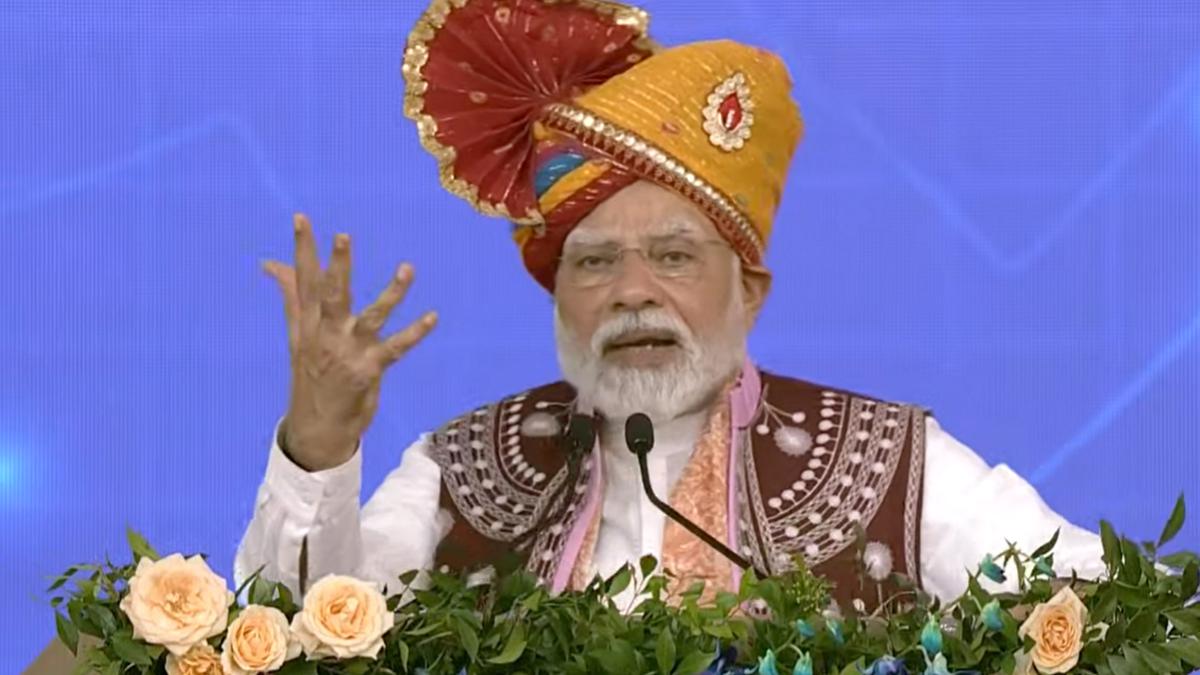
India will soon emerge as global economic powerhouse: PM Modi
The Hindu
PM Modi aims to make India a global growth engine; Vibrant Gujarat Summit has grown from humble beginnings to a successful institution; India will soon emerge as a global economic powerhouse; Vibrant Gujarat has showcased India's industrial capacity, talent, and culture to the world.
Prime Minister Narendra Modi on September 27 said his aim is to make India a global growth engine and expressed confidence that the country will soon emerge as an economic powerhouse of the world.
Speaking at an event to mark 20 years of success of the Vibrant Gujarat Summit, PM Modi said they sowed small seeds of a “Vibrant Gujarat” 20 years ago, and today it has developed into a big tree.
PM Modi also said that Vibrant Gujarat became a success at such a time when the previous Central Government (UPA dispensation) was “indifferent” to the industrial progress of the State.
“We organised Vibrant Gujarat to make the State a growth engine of India. The country has seen this imagination becoming a reality. In 2014, when I was given the opportunity to serve the country, my aim was to make India a global growth engine,” PM Modi said addressing a gathering of industrialists and businessmen.
Gujarat Governor Acharya Devvrat, Chief Minister Bhupendra Patel and State BJP president C.R. Paatil were also present on the occasion.
“We are standing at such a phase that India will soon emerge as a global economic powerhouse,” PM Modi said, adding that global agencies and experts are today talking on similar lines.
“In a few years, India will be among the world’s top three economies. This is Modi’s guarantee,” the PM said.













